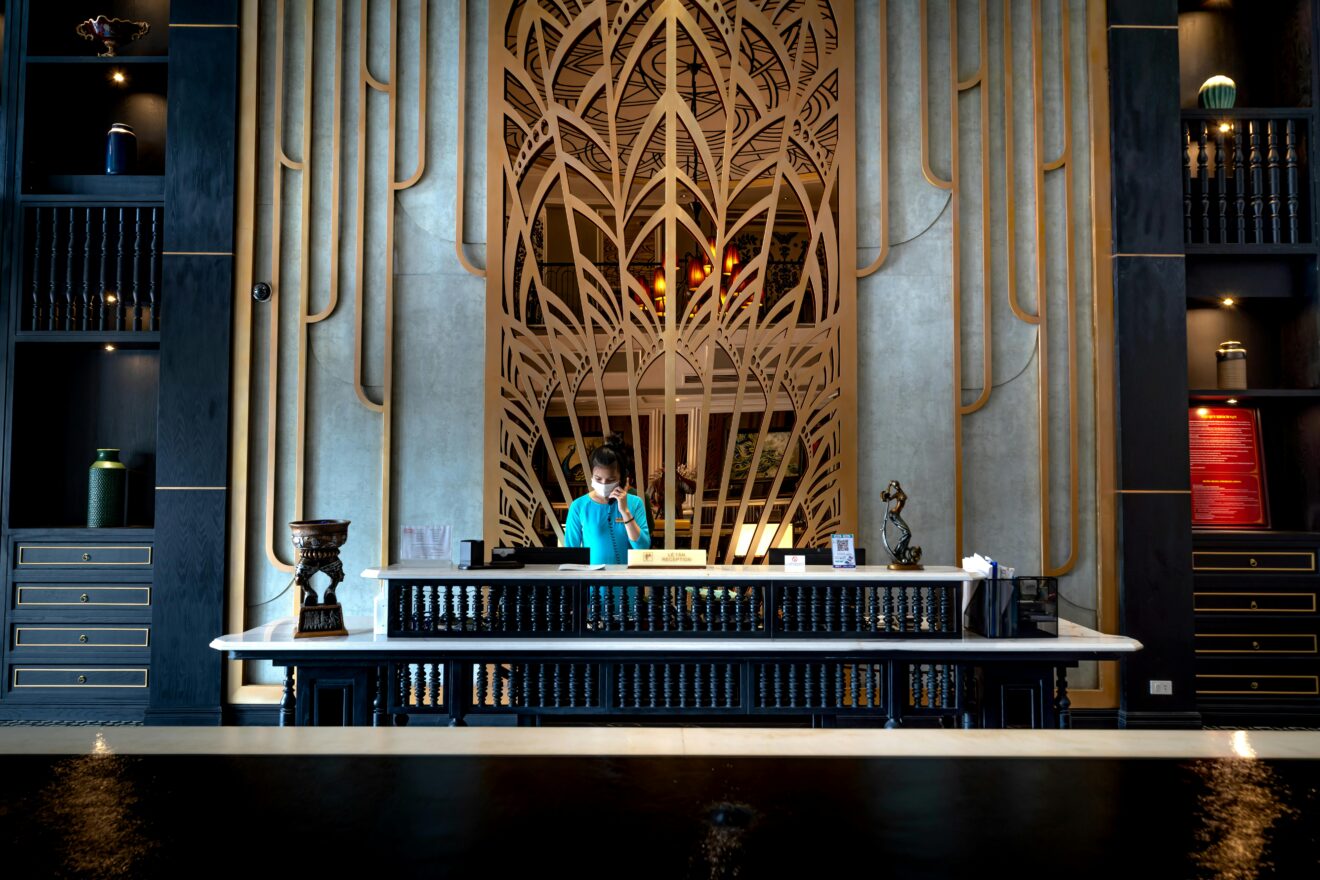As the pandemic slowed travel to a halt and changed both the frequency and the ways in which we travel, the hospitality industry was forced to implement technological innovations with offerings such as no-contact guest services. Now, as the hospitality industry is back to business as usual, technology is finding a crucial role in optimizing operational efficiencies, including anything from streamlining the guest experience to helping with labor shortages. In this interview, Hospitality Financial and Technology Professionals (HFTP) CEO Frank Wolfe discusses the importance of investing in technology in the hospitality industry, the role of AI in hospitality today, the industry’s growing focus on automation and the newest addition to its Hospitality Industry Technology Exposition and Conference this year in June.
How has the role of technology in improving the bottom line evolved in the hospitality industry over the past decade?

The long-held reputation for the hotel industry and its use of technology has been that it is slow in adoption, and it’s been behind the technological curve in comparison to other industries. Perhaps this was because it is an industry focused on providing personalized guest services, and there was a resistance to diminishing person-to-person connections. But nowadays there is no operation without the support of technology and in the last decade we have seen the hospitality industry merge the use of technology to boost guest services and improve operational efficiencies.
One example is how the COVID-19 pandemic sped up the use of no- and low-contact systems and applications. The industry faced several conundrums during this time that it had to work around, including little to no travelers, resistance to surface contact, and a diminishing workforce. Because of this, hospitality companies quickly rallied to add mobile check-in and room keys, guest communications via text messaging, AI-powered concierge services, specialized and automated cleaning, and more. The industry has nicely rebounded since, but these tech-powered services remain and have been a boon for catering to the current generation of tech-savvy travelers. And with these systems in place, it has helped the industry with its lingering issue of a reduced pool of employees. By continuing with tech-driven guest services, hospitality companies can assist their guests with less staffing, and still provide a level of service that is the heart of the industry.
Another big game changer, over the last decade, is the automation of operational and accounting processes. Part of the automation is the capability to capitalize on big data to note trends and communicate with customers. Companies are finally able to take the information they have collected to personalize their guest communications and continue to foster a loyal customer base. Now, the industry has massive amounts of data on our customers but this creates a challenge for us also to determine how to filter the data for best use of individual companies.
In your opinion, what specific technological advancements have had the most significant impact on the hospitality sector? What role do you see AI playing in the industry this year?
The movement towards streamlining the guest journey via mobile devices is changing the face of the guest experience, while also staying true to the service-oriented edict that’s at the center of the industry. All the elements to one’s hotel stay — check-in, room key, room service, concierge, guest requests — are now getting centralized via a guest’s mobile phone. With the adoption of AI, these mobile applications will be even more powerful, expanding and improving the range of their capabilities.
The hospitality industry is known for its adaptability. How can professionals prepare for and embrace technological innovations while minimizing disruptions?
The benefit to the moment we are in is that technology is pervasive and part of our everyday lives, even in the demographic groups that have been most resistant to it. Adopting new technological innovations is not uncommon to today’s professional and is often part of the job as we look for technology solutions to support our work and operations. It’s almost become expected that there is an application to solve our problem. But the piece that we must remain mindful of is that not all solutions presented are the game-changer, no questions asked. The age-old processes of proper research, vetting, planning and training are still key to success, no matter what age we are in.
What do you envision as the future landscape of technology in the hospitality sector, and how should technology and financial professionals prepare for upcoming changes?
- Stay informed: Join HFTP. Read SmartBrief, attend conferences, workshops and training sessions to enhance your knowledge and skills. Talk to your suppliers and collaborate with them to develop roadmaps that align with your company’s strategy and goals.
- Be as flexible as possible. Change management is a very big key to the future. Communicate with your staff the benefits of what you are trying to achieve and address concerns proactively. Keep them educated and up on trends as much as possible.
- Intellectual property – be careful of what you put into ChatGPT, Bard, and other AI products. You might become part of your competitors’ solution and give away trade secrets.
What are you most excited about for this year’s HITEC event?
Besides all the elements that bring people back to HITEC year-over-year, I am thrilled to introduce our newest program HITEC-IC (Investment Conference). This is a two-day event that has been added to the end of HITEC. At HITEC-IC attendees will gain exclusive access to cutting-edge insights and strategies that will empower them to navigate the landscape of technology in the hospitality industry. Network with industry leaders, investors, and the world’s top hospitality technology companies. Learn the nuances of from both innovators and investors to explore new opportunities, forge valuable partnerships, and develop profitable friendships. HITEC-IC is a boutique conference and attendance is very limited.
What I like about the addition of HITEC-IC is that it is part of HFTP’s trajectory of supporting technology innovation in the hospitality industry. In 2015, HFTP started Entrepreneur 20X (E20X). E20X features ambitious start-ups presenting their innovative hospitality technology concepts to a room full of HITEC attendees and a panel of expert judges including hospitality CIOs, angel investors, serial entrepreneurs and industry insiders. Participants compete for the chance to be recognized as one of the top startup business concepts. Since its beginning, HFTP has hosted E20X at events in Europe and Dubai. And we have also seen several winners grow into large and successful companies.
Now with the addition, of HITEC-IC, HITEC is acting as a connector for the continued growth and success of hospitality technology companies.
Learn more about HFTP, HITEC and E20X. Register to attend HITEC, June 24-27 in Charlotte, N.C.
As CEO of HFTP, Frank Wolfe oversees the association’s operations and represents the association worldwide at industry events, on industry boards and committees, and via the news media. As the spokesperson for HFTP, Wolfe frequently speaks on hospitality finance, technology, social media and travel issues to varied audiences and has presented in more than 25 countries. He received CV Magazine’s 2019 Corporate Excellence Award for “Most Influential CEO of the Year — Hospitality Finance and Technology.”
Read more from SmartBrief:
- Navigating the intersection of AI and hospitality
- How hoteliers are addressing the employee shortage
- Escape the big OTAs high fees with a book direct strategy
_______________________
If you enjoyed this content, you sign up for Hotel & Lodging SmartBrief, SmartBrief for the Business Traveler and SmartBrief for the Travel Professional to get travel news and trends in your inbox.
